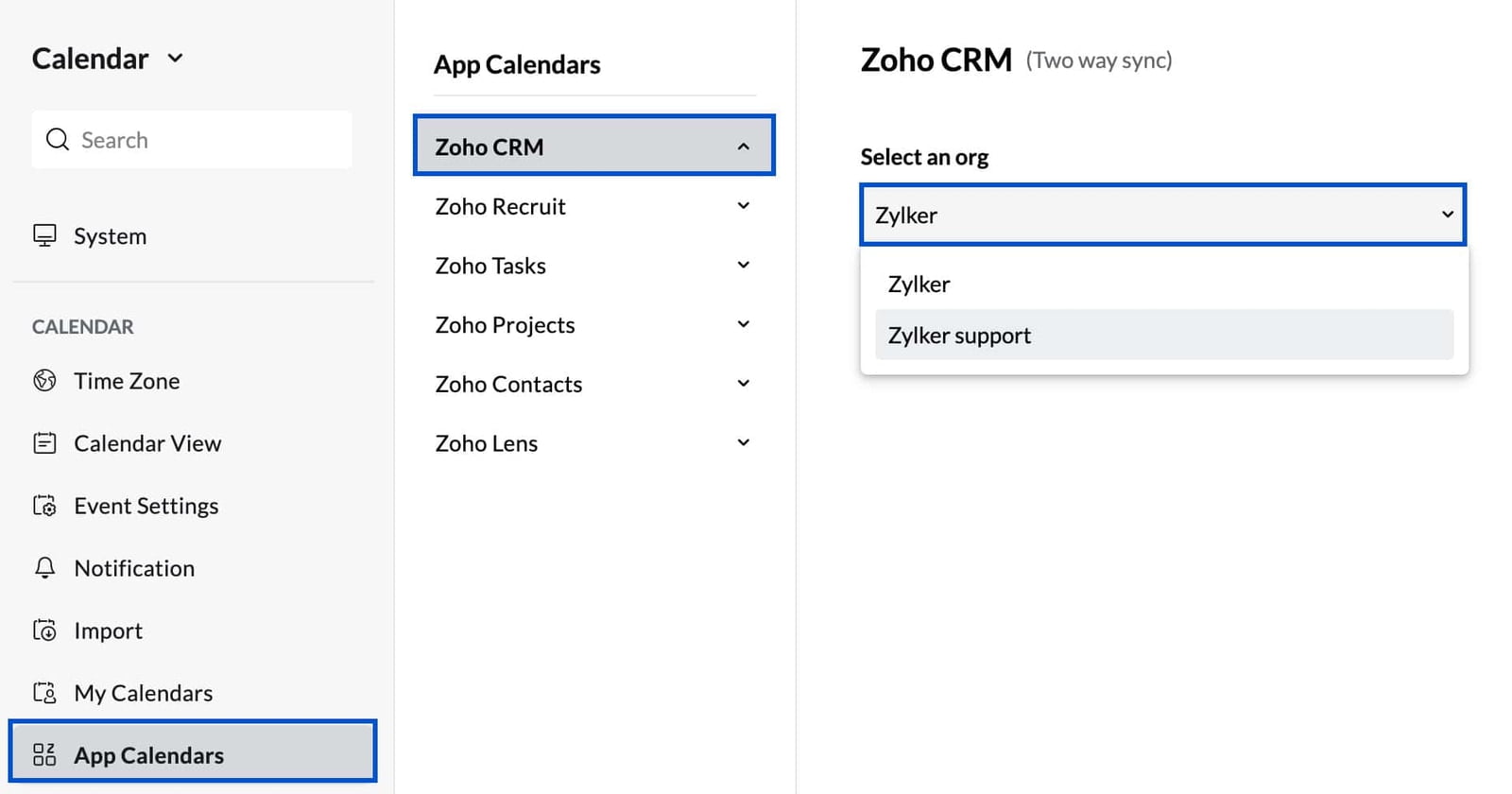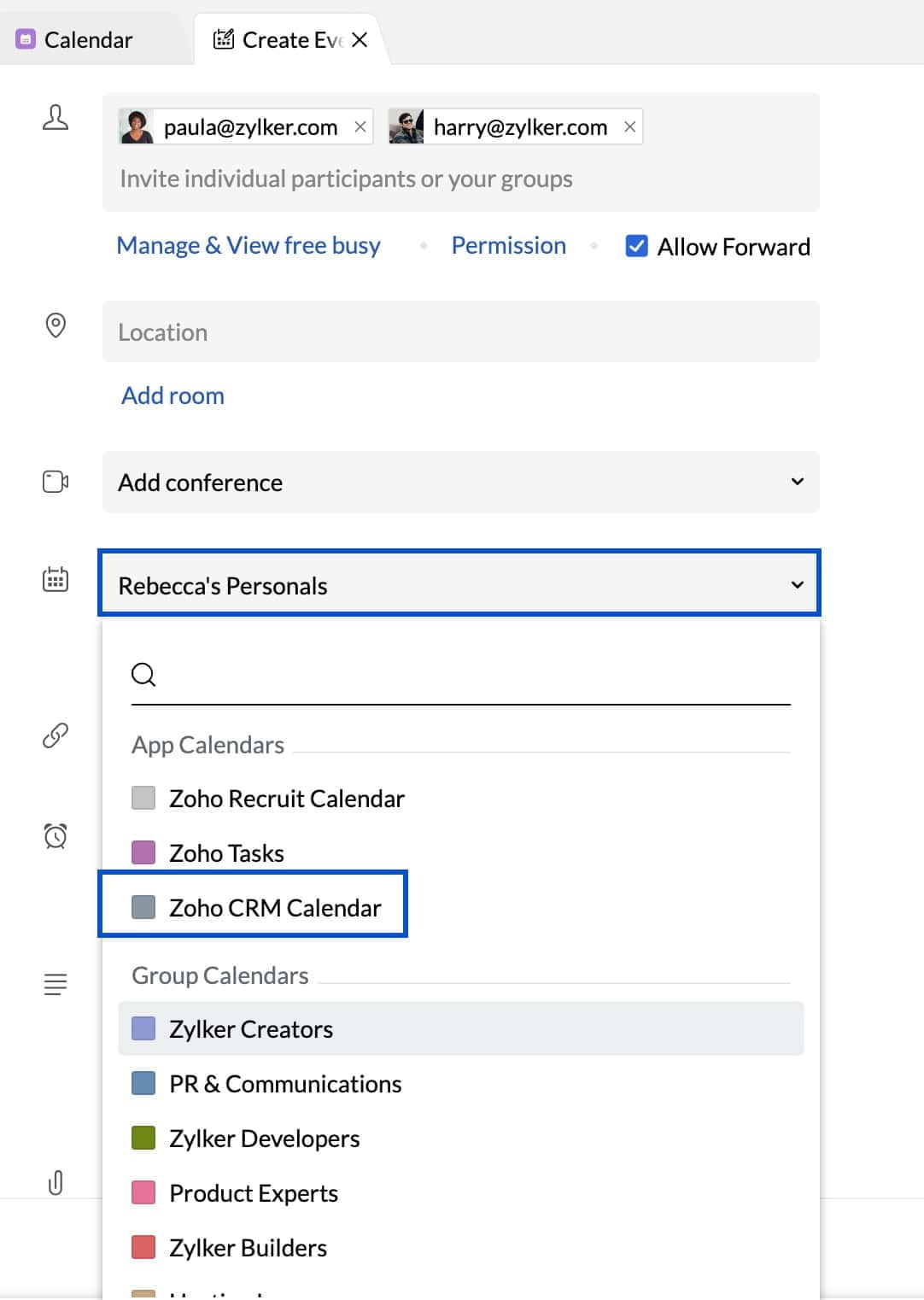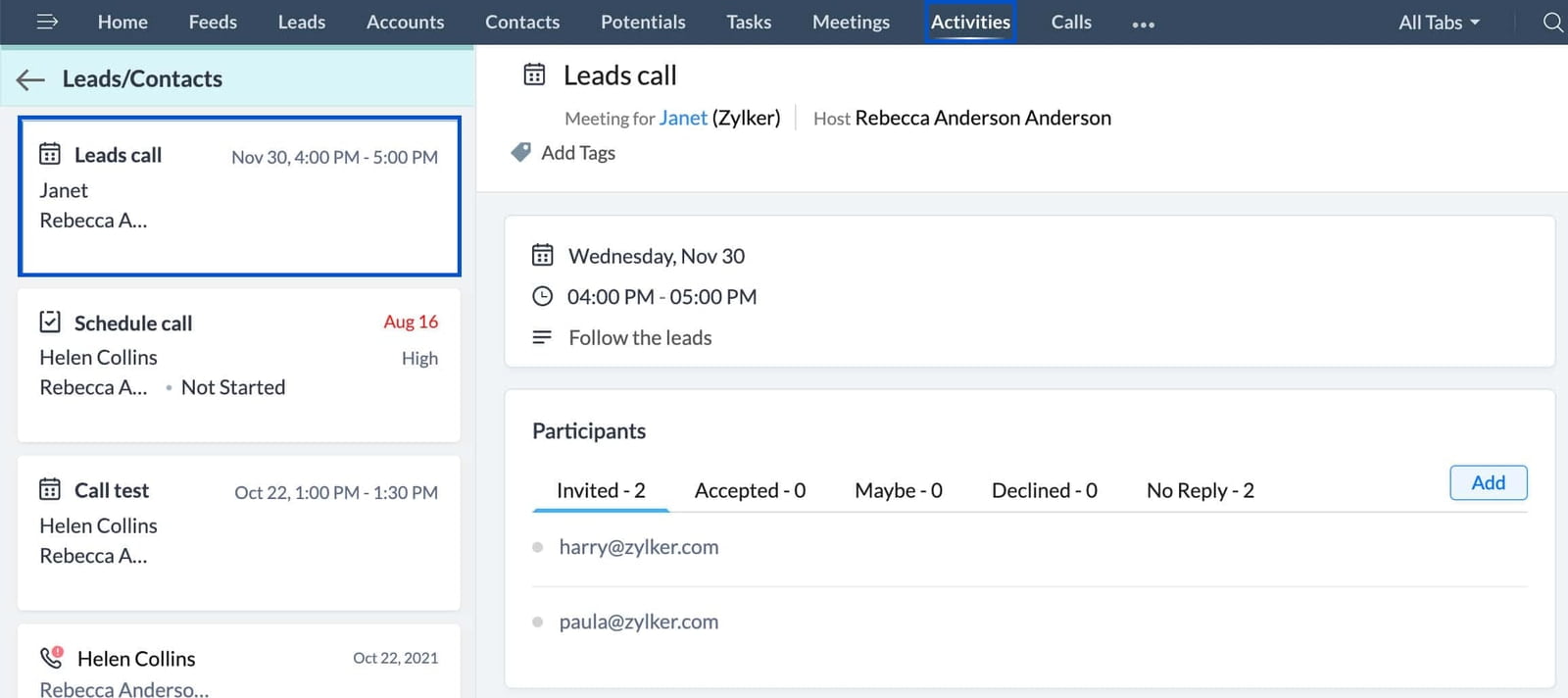Introduction
In today's fast-paced business environment, managing customer relationships and keeping track of appointments can be a challenge. Zoho CRM offers a powerful platform for businesses to manage their customer data, but coordinating schedules and appointments is equally important. This is where integrating Zoho CRM with Zoho Calendar comes into play. The integration between these two platforms not only simplifies scheduling but also enhances your team's efficiency, enabling seamless customer interaction.
In this article, we'll explore how this integration works, its benefits, and how businesses can leverage this feature to improve their overall productivity.
Why Choose Zoho CRM and Zoho Calendar Integration?
Zoho CRM is one of the leading customer relationship management platforms in the market, helping businesses organize customer data, track interactions, and manage sales pipelines. However, without an integrated calendar, managing meetings and follow-ups can become cumbersome. By syncing Zoho CRM with Zoho Calendar, businesses can:
- Streamline appointment scheduling: With a single click, users can schedule meetings directly from the CRM, eliminating the need for switching between applications.
- Improve task management: Tasks and reminders created within Zoho CRM can automatically sync with Zoho Calendar, ensuring important tasks are not overlooked.
- Boost collaboration: Shared calendars allow teams to view each other's schedules, making it easier to coordinate meetings with clients and internal team members.
- Reduce missed appointments: Automated reminders sent through the calendar ensure that appointments are never missed.
Why Choose Zoho CRM and Zoho Calendar Integration?
1.Two-Way Syncing
Zoho CRM and Zoho Calendar integration allows for two-way syncing of data. This means that any changes made in Zoho CRM, such as creating an event or modifying an appointment, will automatically reflect in Zoho Calendar, and vice versa. Everyone is in sync thanks to this real-time synchronization.
2. Automated Scheduling
3. Reminders and Notifications
Forget about manually setting reminders for important meetings. With the Zoho CRM and Zoho Calendar integration, reminders are automatically created for tasks and meetings scheduled through the CRM. These reminders are delivered via email or mobile notifications, ensuring that nothing falls through the cracks.
4. Collaborative Scheduling
Zoho Calendar’s collaborative features allow teams to access and view each other’s schedules. With integrated calendars, team members can efficiently book meetings at mutually convenient times, eliminating endless back-and-forths via email.
5. Task Management Integration
In addition to meetings, you can also sync tasks between Zoho CRM and Zoho Calendar. For example, if a follow-up task is assigned to a sales team member in Zoho CRM, it will automatically show up in their calendar. This ensures that all tasks are accounted for and can be tracked through the calendar for better time management.

How to Integrate Zoho CRM with Zoho Calendar
Integrating Zoho CRM with Zoho Calendar is a straightforward process. Follow these steps to set it up:
Step 1: Log in to Zoho CRM
First, ensure that you have a Zoho CRM account. If you don’t have one, you can sign up for a free or premium plan based on your business needs.
Step 2: Navigate to Zoho CRM Settings
Once logged in, navigate to the settings tab within Zoho CRM. Here, you’ll find the "Marketplace" option where third-party apps and integrations are available.
Step 3: Find Zoho Calendar Integration
In the Marketplace, search for "Zoho Calendar." Once you find the integration, click on it to open the setup options.
Step 4: Configure the Integration
The integration setup screen will prompt you to authorize access between Zoho CRM and Zoho Calendar. You may need to provide permission for Zoho CRM to access your Zoho Calendar data. Follow the on-screen instructions to complete the configuration.
Step 5: Sync Data and Customize
After configuring the integration, you can choose what type of data you want to sync. This can include events, tasks, and reminders. Customize your settings according to your preferences, and you're good to go!

Benefits of Zoho CRM and Zoho Calendar Integration for Businesses
The integration between Zoho CRM and Zoho Calendar offers several advantages to businesses:
1. Enhanced Efficiency
The integration eliminates the need for manual data entry and switching between apps. Sales teams can focus on more important tasks like closing deals, rather than scheduling appointments.
2. Improved Communication
Team members can collaborate more effectively by seeing one other's schedules and using shared calendars. This results in smoother communication and reduced chances of double-booking meetings.
3. Reduced Human Errors
With automated reminders and synced data, businesses reduce the risk of missed appointments or follow-ups. This improves client relations while also raising professionalism.
4. Better Time Management
By integrating tasks, meetings, and follow-ups in one place, businesses can ensure that employees are better equipped to manage their time. Having a clear overview of appointments and tasks prevents any last-minute rush or forgotten deadlines.
5. Data Centralization
Keeping all customer interaction data in one place (Zoho CRM) while managing time through Zoho Calendar allows for a more holistic view of business operations. Sales managers can better analyze performance, knowing both customer engagement and internal coordination are optimized.

Use Cases of Zoho CRM and Zoho Calendar Integration
1. Sales Teams
For sales teams, scheduling meetings with potential leads and clients is crucial. Zoho CRM and Calendar integration simplifies this process, allowing sales reps to focus on delivering value to clients instead of juggling between multiple platforms.
2. Marketing Teams
Marketing professionals need to align their campaigns and outreach efforts with internal meetings and external appointments. Zoho Calendar’s sharing feature allows marketing teams to stay in sync, ensuring campaign deadlines and meetings don’t overlap.
3. Customer Support Teams
Customer support teams can use this integration to better manage their follow-ups. When a ticket or issue is raised in Zoho CRM, it can be scheduled as a task or event on Zoho Calendar. This ensures that all follow-ups are completed on time and customer satisfaction remains high.
Conclusion
The integration between Zoho CRM and Zoho Calendar is a game-changer for businesses looking to streamline their workflow, improve team collaboration, and enhance customer relationships. With features like two-way syncing, automated scheduling, and shared calendars, this integration makes it easier for teams to stay organized and productive. Whether you're a sales team booking meetings with clients or a marketing team coordinating campaigns, Zoho CRM and Zoho Calendar work hand-in-hand to keep your business running smoothly.
By leveraging the power of this integration, businesses can not only save time but also reduce the risk of human error, resulting in improved customer satisfaction and a boost in overall productivity.
